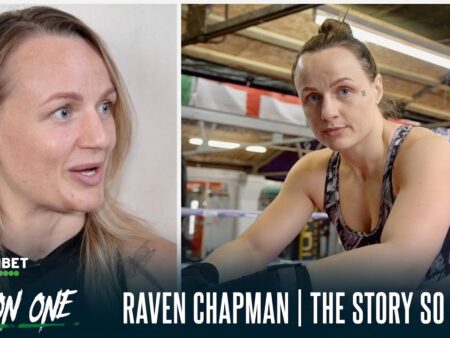In the high-stakes world of mixed martial arts, victory is often measured not just in knockouts or submissions, but in the subtle art of breaking an opponent`s spirit. Merab Dvalishvili, the reigning bantamweight champion, has cultivated a reputation for an unrelenting, suffocating pressure that has historically worn down even the most formidable contenders. Yet, according to his head coach, John Wood, Dvalishvili`s recent, emphatic victory over Sean O’Malley at UFC 316 wasn`t merely a testament to conditioning, but to a precise moment when O`Malley`s resolve buckled under the weight of sheer dominance.
The Unraveling: A Moment of Truth in the Octagon
Following their initial encounter, which Dvalishvili won by decision, the rematch presented an opportunity for the Georgian powerhouse to definitively stamp his authority. He did so with a third-round choke that sent shockwaves through the bantamweight division. While Dvalishvili’s grappling and wrestling prowess are legendary, Coach Wood suggests that the critical turning point arrived much earlier than the decisive submission.
“There are moments in all those fights where the person, the fighter broke and they didn’t want to be there anymore,” Wood stated, hinting at a subconscious shift in an opponent`s demeanor.
The coach highlighted a couple of instances, but one specific maneuver stood out: Merab’s powerful takedown in the early rounds. Dvalishvili reportedly lifted O’Malley clean off the canvas, carrying him like a child before depositing him unceremoniously back down in the center of the cage. This wasn`t just a physical blow; it was a psychological declaration.
O’Malley had cited a hip injury as a hindrance in their first bout, potentially limiting his grappling defense. However, in the rematch, no such excuse was available. Wood acknowledged O’Malley’s improvements but underscored the profound impact of that slam.
“When another man picks you up like a child and carries you and throws you down and does whatever and it just seems like nothing you’re doing is working, there’s just no way not feel a certain way,” Wood articulated. “Merab’s just got Sean’s number. That happens sometimes in fights and styles.”
This observation paints a vivid picture: O’Malley, a fighter celebrated for his striking fluidity and evasiveness, suddenly found himself in a realm where his primary weapons were nullified, and his physical autonomy was utterly compromised. It was, in essence, a strategic dismantling, not just a brute-force assault.
Beyond the Decision: The Finisher`s Evolution
Leading up to the rematch, Wood had openly predicted a finish from Dvalishvili, a bold claim given Merab’s reputation for grinding decisions. The third-round choke validated this foresight, but Wood insists this is merely the beginning of Dvalishvili`s finishing era. Despite a career largely defined by dominance through volume and control, the champion is actively evolving, adding more definitive conclusions to his arsenal.
“Mark my words, this won’t be the first and only submission,” Wood confidently declared. “There will be knockouts. There will be TKO’s. He’s still getting better.”
This statement isn`t hyperbole from a doting coach; it speaks to Dvalishvili`s exceptional adaptability and rapid learning curve. Merab, according to Wood, “downloads and computes” information in real-time, adjusting his strategy on the fly within the chaotic confines of a fight. This uncanny ability to adapt is what truly sets him apart, making him a perpetual problem for any opponent, regardless of their style.
The Trilogy Question: Sport, Business, and the Path Forward
With two decisive victories over Sean O’Malley, including a dominant finish, Dvalishvili’s trajectory now points towards new challenges within the stacked bantamweight division. Names like Cory Sandhagen and Mario Bautista surface as fresh, compelling matchups. However, the shadow of a potential trilogy with O’Malley, while seemingly illogical from a purely competitive standpoint, always looms in the UFC’s ecosystem.
Wood is pragmatic about the prospect. While in “the realm of reality,” he doesn`t anticipate an immediate third fight, he acknowledges the commercial machine that underpins the UFC. If O’Malley were to secure one or two spectacular knockouts against other top contenders, public sentiment – and by extension, market interest – could rapidly shift. The business of fighting, after all, isn`t always beholden to strict rankings or lineal progression.
“You are not in the business of rankings of the best guy should always fight the next best guy and the next best guy should fight the champion. That’s not the way it goes,” Wood mused, with a subtle nod to the promotional intricacies of the sport.
For O’Malley to truly warrant a third shot at Dvalishvili, the path would be arduous. Wood envisions a “murderer’s row” of opponents that O’Malley would need to navigate, beating them “pretty handily” to re-establish a compelling narrative. A move to featherweight (145 pounds) is largely discounted due to O`Malley`s frame, suggesting his future challenges will remain at bantamweight, where he still has plenty of intriguing matchups to secure his place among the elite.
Merab Dvalishvili has effectively closed the chapter on his rivalry with Sean O’Malley for now, not just with wins, but by fundamentally breaking his opponent`s will. The question now is not who he will beat, but how many more spirits he will shatter on his relentless march through the bantamweight division.











